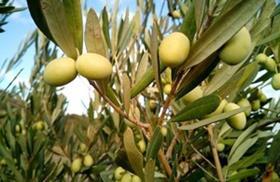
The government has announced plans to address the plant health threat posed by Xylella.
A new Statutory Instrument will come into force next month to introduce stricter measures against Xylella fastidiosa, a bacterium which causes disease in a wide range of woody commercially grown plants such as grapevine, citrus, olive and several species of broadleaf trees widely grown in Great Britain, as well as many shrubs and herbaceous plants.
New requirements will apply to those countries where Xylella is known to be present and will include:
- Only allowing imports of polygala and coffea from countries where Xylella is known not to occur;
- More stringent requirements for the import of olive, almond, lavender, rosemary and nerium oleander from countries where Xylella is known to occur;
- Allowing imports under certain conditions including inspections of the place of production and the surrounding area, testing, pre-export inspections and a one-year quarantine period prior to import;
- The existing requirements for high-risk plants from countries where Xylella is not known to occur will be retained, which include annual official inspection, with sampling and testing of the plants concerned.
Biosecurity minister Lord Gardiner of Kimble said: 'We take the nation’s biosecurity very seriously. That is why we are increasing restrictions and requirements for the import of high-risk Xylella host plants to reduce the chances that Xylella is introduced into Great Britain. These measures will enhance the level of protection against this devastating disease and are necessary to protect our country.'
Chief plant health officer Nicola Spence said: 'Xylella is not currently in Great Britain and it is essential that all of us with an interest in a healthy, thriving plant and horticulture industry do all we can to keep it that way and protect our environment and businesses.
'To keep our country protected, it is vital that all plant importers and traders welcome these new measures and continue to make careful decisions on sourcing plants, particularly those from countries where Xylella is present.'
Xylella is continuing to spread in Europe with outbreaks of the disease occurring in Italy, France, Spain, Germany and Portugal, the government said. The pathogen is not known to be present in Great Britain, but the possibility remains of Xylella arriving on high-risk hosts, such as olive, and those plant species commonly associated with outbreaks in the EU. The long latency period of Xylella means that, without additional requirements, it could be carried into non-infected countries via imports of plants, long before the infection is identified.
The new measures will cover Great Britain and the legislation is due to come into force on 4 March.



